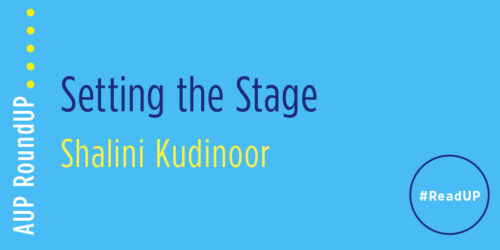University Press Roundup

Welcome to our weekly roundup of the best articles from the blogs of academic publishers! As always, if you particularly enjoy something or think that we missed an important post, please let us know in the comments. (And look back at our University Press Roundup Manifesto to see why we do this post every Friday.)
Several posts this week touch on themes of the environment, memory, and transformation. Mikael Wolfe, at Duke University Press, discusses the connection between water management, land redistribution, and socioeconomic reform during the past century in Mexico. In the fifth installment of his series commemorating the 1967 Detroit Riot on the University of Michigan Press blog, Brian Matzke challenges us to think of Detroit not as a “ruined” city but as a new kind of urban environment with its own, revolutionary beauty. And at the University of Minnesota Press, Cord J. Whitaker finds a powerful message about the importance of ecological memory in recent episodes of Game of Thrones.
With health care reform in the news this week, Sandro Galea at Oxford discusses the environmental and socioeconomic conditions that have led to higher morbidity and lower life expectancy in the U.S. than in many other developed countries. James A. Tyner, at the University of Nebraska, urges us to use the word “violence” to talk about proposed legislation that would take away health care from millions, linking such legislation to other forms of slow violence such as climate change and environmental racism. “We do not ‘see’ structural violence because it is too often passed off as natural, normal, or unintentional,” he argues. “In practice, however, structural violence can—and must—be understood as resulting from agency.”
We often talk about the “secular left” and the “religious right”—but Christopher H. Evans at the NYU Press Blog reminds us that there is also a “religious left” with a long history of political engagement and activism. Since the days of the social gospel movement at the turn of the century, he says, religious progressives have used Biblical narratives and ethical teachings to advocate for policies that would reduce inequality and help the poor.
On the theme of storytelling and social change, Oxford University Press has articles this week on the progressive politics and contemporary relevance of two Irish playwrights: George Bernard Shaw and Seán O’Casey. Transgender rights are also back in the news this week, and Jackson Wright Schultz of the University Press of New England writes about the importance of lifting up transgender voices and stories.
If grappling with systemic injustice and rancorous politics has been getting you down, never fear—Oxford University Press has a few posts this week on psychology and wellbeing. Andrew Macleod talks about the relationship between prospection—imagining the future—and mental health. Sebastian Watzl ponders the nature of attention. Finally, Jaime Kurtz offers some psychology-based approaches for getting the most joy and relaxation out of a vacation.
From the grab-bag of the eye-catching and the odd: Abigail le Marquand-Brown at Oxford talks about the role that music might have played in the earliest development of human culture. Bill Maurer and Lana Swartz, at MIT, muse on the nature of “money stuff” and the possibility of a cashless society. Finally, Johanna Luthman offers up a lively portrait of the eccentric fifteenth-century English mystic Margery Kempe.
Have a great week.


